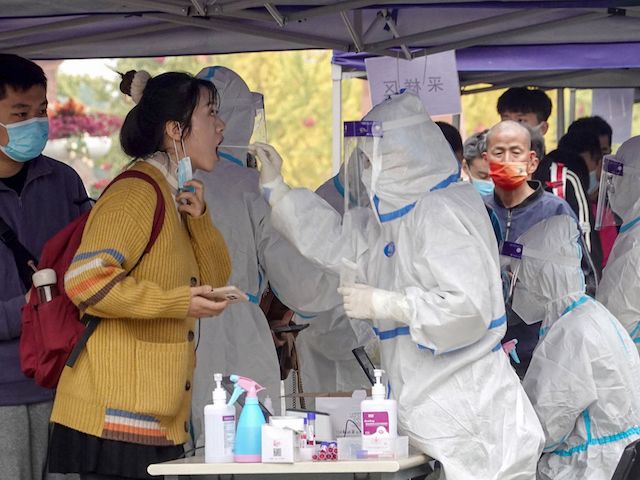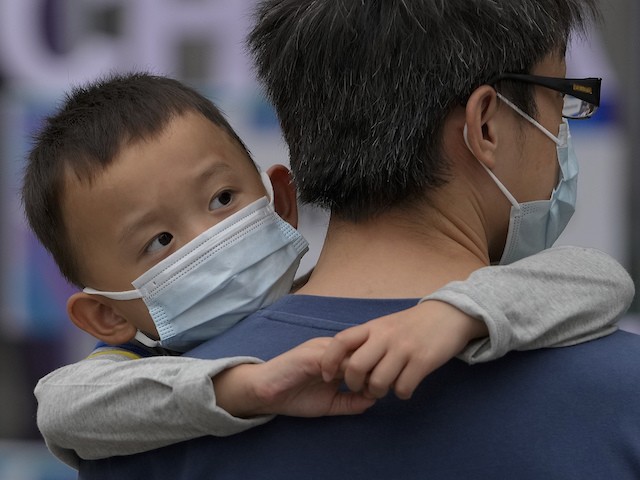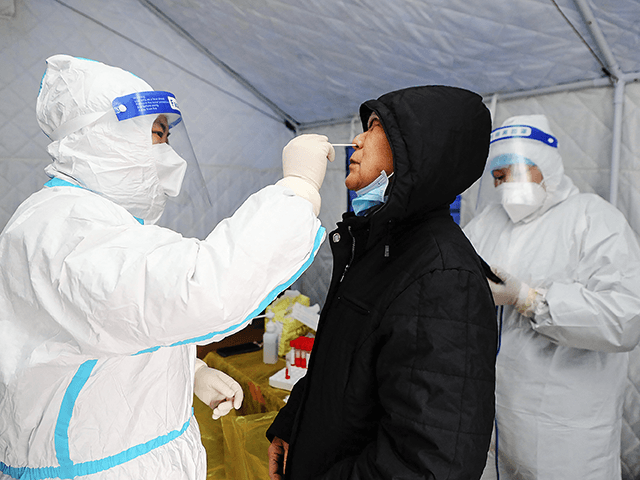China’s ruling Communist Party sent a specialized task force to the Russia-China land port of Manzhouli this week to “investigate hidden loopholes” among the city’s import stations that allegedly sparked an ongoing outbreak of the Chinese coronavirus in Manzhouli last month, the Global Times reported Wednesday.
Wang Hesheng, who serves as the director of the Chinese Center for Disease Control and Prevention and as the deputy head of China’s National Health Commission, led the anti-epidemic task force dispatched to Manzhouli on December 8.
“[T]he group visited railway joint detection center, logistics companies, container handling station and e-port command center in Manzhouli to learn about their daily epidemic prevention and control measures [sic],” according to the Global Times, which is a newspaper published by the Chinese Communist Party (CCP).
The public health delegation “urged” Manzhouli government officials to “investigate hidden loopholes and close loopholes, [and] adopt a strict closed-loop management on people who deal with imported goods.”
Manzhouli health authorities allegedly detected new Chinese coronavirus cases in the busy port city on November 27 among a handful of people who work directly with imported goods. The infections soon spread throughout the border community and caused an epidemic of the disease among Manzhouli residents that continues today. The outbreak caused 449 domestically transmitted cases of coronavirus in Manzhouli as of December 8.

A resident undergoes a nucleic acid test for the coronavirus in Xian in China’s northern Shaanxi province on October 20, 2021. (STR/AFP via Getty Images)
Unidentified “local business representatives” in Manzhouli told the Global Times on Wednesday they believed one of the alleged epidemic “loopholes” highlighted by the CCP this week included a failure by some port managers to impose regular coronavirus testing on workers processing imported goods. This regular testing was already mandatory for such staff prior to Manzhouli’s latest coronavirus outbreak on November 27 according to the land port’s strict anti-virus protocol.
“[A]lthough authorities have implemented strict epidemic prevention measures among staff working at the [city’s] port, including the freight train staff and those who work at warehouses, with regular nucleic acid testing requirement, there was still an absence of such requirement among workers at wood processing factories [sic],” the anonymous business representatives told the newspaper.
“This became the loopholes in the whole-process anti-epidemic work [sic],” according to the sources.
“Spread from touching surfaces is not thought to be a common way that COVID-19 spreads,” the U.S. Centers for Disease Control and Prevention (CDC) wrote in June.

A man carries a child, both wearing face masks to help curb the spread of the coronavirus, walk on a street in Beijing, September 12, 2021. (AP Photo/Andy Wong)
Manzhouli’s latest coronavirus outbreak is part of a nationwide resurgence of the disease across China that began in mid-October. The CCP has characterized the national epidemic as an “imported” phenomenon. According to state-run mouthpieces, such as the Global Times, the new cases are traced to a Shanghai-based tour group that traveled to China’s Inner Mongolia Autonomous Region in early October.
Beijing’s official narrative claims some members of this tour group visited the China-Mongolia border town of Ejin Banner and subsequently contracted coronavirus from an unspecified foreign source. China has not identified a single foreign individual or a Chinese citizen who traveled abroad among the first patients that that triggered this outbreak.
Both Ejin Banner and Manzhouli are located in China’s Inner Mongolia Autonomous Region, though on opposite sides of the vast border territory.

COMMENTS
Please let us know if you're having issues with commenting.